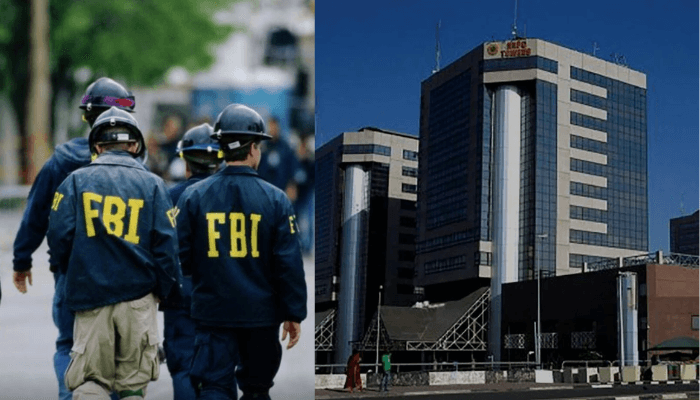A former high-ranking official of the Nigerian National Petroleum Company (NNPC) is facing federal charges in the United States stemming from an alleged $2.1 million bribery plot involving a Chinese oil company.
Data from the United States Attorney’s Office, Central District of California showed Paulinus Okoronkwo, 67, a dual US-Nigerian citizen residing in California, has been indicted on three counts of engaging in monetary transactions in property derived from specified unlawful activity, one count of tax evasion, and one count of obstruction of justice.
The indictment alleges that Okoronkwo received the bribe while serving as general manager of NNPC’s upstream division and negotiating drilling rights for a subsidiary of a state-owned Chinese oil company.
“In this role, Okoronkwo owed a fiduciary duty to the NNPC and the Nigerian people and was a public official,” United States Attorney’s Office, Central District of California said in a statement seen by BusinessDay.
In October 2015, Addax Petroleum, a Switzerland-based subsidiary of Sinopec, Chinese state-owned petroleum, gas, and petrochemical conglomerate, wired a payment of $2,105,263 to an Interest on Lawyers’ Trust Account (IOLTA) in the name of Okoronkwo’s Los Angeles law firm, purportedly for his work as a consultant who negotiated and completed a settlement agreement with the NNPC with respect to Addax’s drilling rights in Nigeria.
The United States Attorney’s Office noted that Addax calculated that it stood to lose billions of dollars if its favourable drilling rights were not secured.
“The engagement letter that Addax signed that month with Okoronkwo’s law office – with a fake address in Lagos, Nigeria – allegedly was a ruse intended to conceal the fact that its payment to Okoronkwo was a bribe in exchange for his influence in securing more favourable financial terms relating to its crude oil drilling in Nigeria,” US said.
According to the indictment, to conceal the illegal bribery scheme, Addax falsely characterized the $2.1 million payment as payment for legal services lied to an auditor about the payment, and fired an executive who questioned the payment’s propriety. To create the false impression that the bribe payment constituted client funds, Okoronkwo allegedly received the payment in his law firm’s IOLTA.
In November 2017, Okoronkwo allegedly used $983,200 of the illegally obtained funds to purchase a house in Valencia.
In addition to money laundering, Okoronkwo is charged with tax evasion for allegedly omitting the $2.1 million bribe payment from his 2015 federal income tax return. He is also charged with obstruction of justice for allegedly lying to investigators when interviewed in June 2022.
“An indictment contains allegations that a defendant has committed a crime. Every defendant is presumed to be innocent until and unless proven guilty in court,” United States Attorney’s Office, Central District of California said.
Implications & Next Steps
The charges against Okoronkwo carry significant legal consequences, with potential maximum sentences amounting to 35 years in federal prison if convicted on all counts.
“If convicted of all charges, Okoronkwo would face a statutory maximum sentence of 10 years in federal prison for each money laundering count, 10 years in federal prison for the obstruction of justice count, and five years in federal prison for the tax evasion count,” United States Attorney’s Office said.
This case not only underscores the international dimension of corruption in the oil industry but also demonstrates the intricate methods employed to conceal such dealings.
As Okoronkwo awaits arraignment in the United States District Court in Los Angeles, the broader implications for the NNPC and Addax Petroleum, as well as for the industry at large, remain keenly observed by global watchdogs and the international community.
This indictment serves as a stark reminder of the pervasive nature of corruption within sectors of critical economic importance and the ongoing efforts by law enforcement agencies worldwide to combat these illicit activities.
As the legal process unfolds, the attention it garners will undoubtedly contribute to the broader discourse on corporate ethics, governance, and the mechanisms in place to deter and punish corruption.

